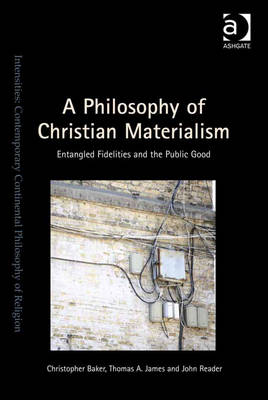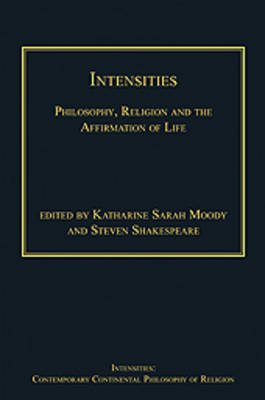Intensities: Contemporary Continental Philosophy of Religion
2 total works
A Philosophy of Christian Materialism
by Christopher R. Baker, John Reader, and Thomas James
A Philosophy of Christian Materialism offers a new religious engagement with the public sphere via means of interdisciplinary analysis and empirical examples, developing what the authors call a Relational Christian Realism building upon interaction with contemporary Philosophy of Religion. The book argues that the current discourse on public religion is inadequate in addressing the issues now to be faced, including: material religious practice in the sphere of education; the growth of alternative political movements and the developing awareness of environmental concerns and urban social justice. Key concepts that support this strategic analysis are: entangled fidelities (the form of a materialist religious practice); the possibility of a relational Christian realism (including new developments in how we interpret key categories of doctrine including God and creation, salvation and humanity), and the post-secular public sphere (including the emerging phenomenon of postsecular rapprochement - namely the coming together of both religious and secular actors in methodologies and politics of pragmatism as well as ethical discourse for the sake of the public commons). Co-authored by theologians in both the USA and the UK, this book represents an exciting contribution to philosophy and practice of religion on both sides of the Atlantic and aspires to be sufficiently interdisciplinary to also appeal to readerships engaged in the study of modern political and social trends.
Intensities
Is the affirmation or intensification of life a value in itself? Can life itself be thought? This book breaks new ground in religious and philosophical thinking on the concept of life. It captures a moment in which such thinking is regaining its force and attraction for scholars, and the relevance of thought to social, cultural, political and religious dilemmas about how and why to live. Bringing together original contributions by highly distinguished authors in the field of Continental philosophy of religion, including John D. Caputo, Pamela Sue Anderson, Philip Goodchild, Alison Martin and Don Cupitt, this book has a distinctiveness based on its refusal to sit easily within either secular philosophical or theological approaches. The concept of life mobilizes a thinking that crosses narrow disciplinary boundaries, whilst retaining philosophical rigour.
Three sections explore the various dimensions of the question of life: The Politics of Life'; 'Life and the Limits of Thinking'; and 'Life and Spirituality'. This book will be of interest to a broad range of readers in the humanities, particularly to philosophers, theologians, cultural theorists and all those interested in philosophical or theological debates on the concept of life.

